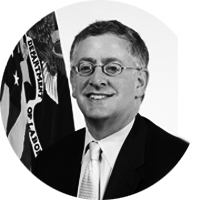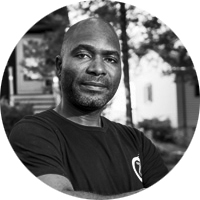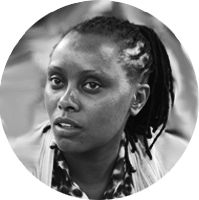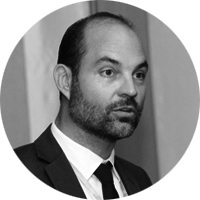2014 Symposium
KEYNOTE ADDRESS

Ms. Constance Thomas
Director of the International Labour Organization’s
International Programme on the Elimination of Child Labour
SPEAKERS

Mr. Eric Biel
Acting Associate Deputy Undersecretary for International Affairs | U.S. Department of Labor
Eric Biel joined the Bureau of International Labor Affairs (ILAB) at the U.S. Department of Labor in February 2012. He is part of ILAB’s senior leadership team, working on a diverse set of projects and activities, including supply chain issues across different sectors and submissions under the labor chapters of free trade agreements. Before joining the Department, Mr. Biel was Managing Director for Corporate Responsibility at Burson-Marsteller, a global consulting firm. From 2003-06 he was Deputy Washington Director and Senior Counsel of Human Rights First (formerly the Lawyers Committee for Human Rights). Prior to that he was Senior Vice President and General Counsel at Fontheim International, a Washington consulting and law practice.
Mr. Biel served in senior positions at the U.S. Department of Commerce from 1997-2000, including Deputy Undersecretary for Trade Policy and Acting Director of the Office of Policy and Strategic Planning. From 1995-97, he was Director of the Commission on Protecting and Reducing Government Secrecy, a bipartisan body chaired by Senator Daniel Patrick Moynihan. From 1990-95, he was International Trade Counsel at the Senate Finance Committee, following five years in private law practice.
He received a B.A. in history from Johns Hopkins and joint degrees in law from Yale Law School and public policy from the Woodrow Wilson School of Public and International Affairs at Princeton. Eric Biel joined the Bureau of International Labor Affairs (ILAB) at the U.S. Department of Labor in February 2012. He is part of ILAB’s senior leadership team, working on a diverse set of projects and activities, including supply chain issues across different sectors and submissions under the labor chapters of free trade agreements. Before joining the Department, Mr. Biel was Managing Director for Corporate Responsibility at Burson-Marsteller, a global consulting firm. From 2003-06 he was Deputy Washington Director and Senior Counsel of Human Rights First (formerly the Lawyers Committee for Human Rights). Prior to that he was Senior Vice President and General Counsel at Fontheim International, a Washington consulting and law practice. Mr. Biel served in senior positions at the U.S. Department of Commerce from 1997-2000, including Deputy Undersecretary for Trade Policy and Acting Director of the Office of Policy and Strategic Planning. From 1995-97, he was Director of the Commission on Protecting and Reducing Government Secrecy, a bipartisan body chaired by Senator Daniel Patrick Moynihan. From 1990-95, he was International Trade Counsel at the Senate Finance Committee, following five years in private law practice.
He received a B.A. in history from Johns Hopkins and joint degrees in law from Yale Law School and public policy from the Woodrow Wilson School of Public and International Affairs at Princeton.

Prof. Alfred Babo
Associate Professor of Anthropology and Sociology | University of Bouaké, Côte d’Ivoire
Currently Visiting Professor at Smith College
Alfred Babo is Associate Professor and Researcher in the University of Bouaké’s Department of Anthropology and Sociology in Côte d’Ivoire. Professor Babo is a prominent scholar and advocate for sustainable socioeconomic and sociopolitical development, both in his native Côte d’Ivoire and West Africa as a whole. He is a member of the Council for the Development of Social Science Research in Africa, the American Political Sciences Association and the Société Suisse d’Etude Africaines.
A specialist in development theory, social change, and conflict and post-conflict society, Professor Babo has published on public policy issues ranging from elections to youth sociopolitical movements to rural land disputes. He has also worked extensively with international organizations on research projects and trainings aimed at promoting peace and sustainable development in Côte d’Ivoire and West Africa more generally. For example, he collaborated with the Swiss International Cocoa Initiative Foundation to lead trainings and deliver lectures on just practices in cocoa production that protect child laborers. In recognition of his work, the Royal Museum for Central Africa in Belgium awarded him with the 2004 Belgian Development Cooperation Prize, given annually to a scholar committed to “sustainable development in the South.”

Prof. Anupam Chander
Director, California International Law Center Professor of Law, University of California, Davis School of Law

Prof. Andrew S. Dillon
Assistant Professor of Agricultural, Food, and Resource Economics
Michigan State University
Andrew Dillon is Assistant Professor at Michigan State University in the Department of Agricultural, Food and Resource Economics. He is currently involved in randomized evaluations of projects in Burkina Faso, El Salvador, Ghana, Mali and Nigeria. His research includes work on household labor supply and education decisions, the agriculture, health and nutrition nexus, and social networks. Andrew holds a PhD in Applied Economics and Management from Cornell University and was a Peace Corps Volunteer in Mali from 1999-2001. Before coming to Michigan State, he was a research fellow at the International Food Policy Research Institute.
Some of his publications include: “Child Labor Responses to Production and Health Shocks in Northern Mali,” Journal of African Economies (2012); “Do household definitions matter in survey design? Results from a randomized survey experiment in Mali,” Journal of Development Economics (2012); “Explaining Variation in Child Labor Statistics” Journal of Development Economics (2012) (co-authored with Elena Bardasi, Kathleen Beegle, and Pieter Serneels); “The Effect of Irrigation on Poverty Reduction, Asset Accumulation and Informal Insurance: Evidence from Northern Mali,” World Development (2011); “Do Labor Statistics Depend on How and to Whom the Questions Are Asked? Results from a Survey Experiment in Tanzania,” World Bank Economic Review (2011) (co-authored with Elena Bardasi, Kathleen Beegle and Pieter Serneels). “Measuring Child Labor: Comparisons between Hours Data and Subjective Measures,” Research in Labor Economics (2009).

Prof. Erika George
Professor of Law & Co-Director | Center for Global Justice
University of Utah, S.J. Quinney College of Law
Professor Erika George is
currently Professor of Law at the University of Utah S.J. Quinney College of Law. She currently serves as special counsel to the Women’s Rights Division of Human Rights Watch. She was co-chair of the Africa Interest Group of the American Society of International Law and a founding Advisory Board Member of the University of Utah’s Tanner Center for Nonviolent Human Rights Advocacy.
Professor George’s research interests include globalization and the indivisible, interdependent, and interrelated nature of civil liberties and socioeconomic rights; cultural pluralism and rights universalism; gender violence and gender equality; justice and peace promotion in post-conflict societies; environmental justice; and the use of documentary film in human rights advocacy and education. Her current research explores the responsibility of transnational corporations to respect international human rights and various efforts to hold business enterprises accountable for alleged abuses.
Professor George earned a B.A. with honors from the University of Chicago and a J.D. from Harvard Law School, where she served as Articles Editor of the Harvard Civil Rights-Civil Liberties Law Review. She also holds an M.A. in International Relations from the University of Chicago.
She is writing a book for Oxford University Press on the subject of global corporate social responsibility titled Incorporating Rights: Corporate Social Responsibility, Conscious Communities and Transnational Order.

Dean Kevin Johnson
Dean | University of California, Davis School of Law

Patricia Jurewicz
Director | Responsible Sourcing Network
Patricia Jurewicz is the founder and Director of the Responsible Sourcing Network, which she started as a project of As You Sow in 2010. Currently she sits on governing or advisory committees for the Public-Private Alliance for Responsible Mineral Trade, the Cotton Coalition, ICCR’s Human Trafficking Group, and the Conflict Free Smelter Program.
Ms. Jurewicz started managing the Human Rights department inside As You Sow’s Corporate Social Responsibility Program in 2006. In that role she led the Human Rights Program to tackle labor abuses at the factory level, she contributed to the report Best Current Practices in Purchasing: The Apparel Industry, and she began ground-breaking work addressing forced labor and extortion at the commodity level of supply chains. She previously worked at the Institute for Agriculture and Trade Policy (IATP), directing the Global Cooperation Project. She co-authored a report entitled, The Treaty Database: U.S. Compliance with Global Treaties. While employed at Gap, Inc. she spearheaded a rewrite of the company’s Vendor Handbook, which was distributed to 3000 manufacturing facilities worldwide.

Prof. Deborah Levison
Professor, Humphrey School of Public Affairs | University of Minnesota
Deborah Levison is an economist and demographer. Levison studies the work and schooling of children in poor countries, typically via quantitative analysis of survey data and also through qualitative approaches. Recent projects have focused on the effect of Egyptian girls’ household work on their school attendance; on child domestic servants in Latin America; and on children in risky work in Brazil. Her co-authored book, RIGHTS AND WRONGS OF CHILDREN’S WORK (2010), explores the place of work in children’s lives and development. Other research areas include child care and women’s employment. Levison is one of the investigators on the IPUMS-International project
(www.ipums.org), which is dedicated to collecting, archiving, and distributing census data from around the world.
She earned a doctorate in economics from the University of Michigan, where she also trained at the Population Studies Center. She spent two years as a postdoctoral fellow at Yale University’s Economic Growth Center before joining the University of Minnesota in 1992. She is a Professor at the University’s Hubert H. Humphrey School of Public Affairs, where she has received multiple teaching awards. Her sabbatical years have been spent at the International Labour Organization, Geneva, Switzerland (2001-2002) and as a technical advisor to the Whole Village Project in Tanzania (2009-2010).
Her groundbreaking book co-authored with Michael Bourdillon, William Myers, and Ben White, Rights and Wrongs of Children’s Work, Rutgers University Press (2010), considers international policies governing children’s work, observes the complexity of the assessment of outcomes, and questions current child labor policies and interventions.
Dr. William Myers
Visiting Scholar, Department of Human Ecology | University of California, Davis

Ms. Mil Niepold
Senior Mediator | Consensus Building Institute
Mil Niepold is Senior Mediator at the Consensus Building Institute where she specializes in convening multi-stakeholder dialogues around complex social issues and focuses on corporate stakeholder engagement, human rights, vulnerable populations, natural resource and land use management, and global voluntary standards development. She has worked with First Lady Dominique Ouattara to design a first-ever multi-stakeholder oversight committee to address the elimination of child labor in Côte d’Ivoire and analyzed corporate stakeholder engagement lessons from the extractives sector and tailored them for use in the agriculture sectors.
As Senior Policy Advisor at Verité for nearly 14 years, Ms. Niepold led a number of new initiatives including Verité’s work on women in the workplace (with UNIFEM and Calvert Social Investments) and multi-stakeholder initiatives, with a focus on programs to implement the Harkin – Engel Protocol on child labor in cocoa production. Ms. Niepold has extensive experience working with governments, including those of the United States, Côte d’Ivoire, Ghana, and France, among others. Prior to joining Verité, she was Strategic Advisor to Ambassador Swanee Hunt. Previously, her corporate social responsibility work spanned both private sector with Fortune 500 companies such as American Express and the public sector with organizations such as UNICEF, the European Union, the French Trade Office and Social Accountability International.
Mil holds degrees in International Affairs and European Studies from George Washington University and L’Institut des Sciences Politiques in Aix-en-Provence, France as well as a Certificate in International Human Rights Law from Oxford University, UK.

Ms. Jane Nyambura
Program Coordinator for Africa | Ethical Tea Initiative
Jane Nyambura is the Ethical Tea Partnership’s Programme Coordinator for Africa and is responsible for supporting ETP’s work programs in the region. Ms. Nyambura, who herself is a tea farmer, was previously employed by Africa Now as the Regional Manager for Ethical Business Services in East Africa. Ms. Nyambura has a degree in Business Administration majoring in Marketing, and a MBA in Strategic Management. Having worked for the Kenya Tea Development Agency (KTDA) for 7 years in charge of standards compliance, she has extensive first-hand experience of working with smallholder famers. Another significant part of her role at KTDA was helping tea and coffee factories to attain Fairtrade and Rainforest Alliance certification, while also monitoring the Ethical Teal Partnership’s assessments.

Mr. Paul Rosenthal
Partner | Kelley, Drye & Warren LLP
A graduate of the UC Davis School of Law, Mr. Rosenthal is a partner in Kelley Drye’s Washington, D.C. office and co-chair of the Government Relations and Public Policy practice group. He has more than 35 years of experience in international trade and government relations matters and more than 12 years of experience working with the international cocoa and chocolate industry, the governments of the United States, Ghana and Cote d’Ivoire, international organizations and non-governmental entities.
Mr. Rosenthal assists a wide variety of companies and industries, including manufacturing, technology, and food and agriculture. He has appeared before all of the U.S. trade agencies and trade courts. He also has represented clients in disputes involving the World Trade Organization (WTO) and the North American Free Trade Agreement (NAFTA), as well as multilateral and bilateral negotiations.
Mr. Rosenthal’s government relations practice involves trade and non-trade issues before Congress and the Executive Branch. He also acts as general counsel or Washington counsel to several trade associations. Mr. Rosenthal previously served as counsel to the Senate Committee on Governmental Affairs for over five years.
Mr. Damien Sanfilippo
Director of Standards and Assurances | Better Cotton Initiative

Dr. Harold Schmitz
Chief Science Officer | Mars, Inc.
Senior Scholar in Management | University of California, Davis Graduate School of Management

Ms. Natasha Schwarzbach
Head of Engagement | Bonsucro
Natasha Schwarzbach has worked at Bonsucro since July 2008. During this period, she created the architecture for the Production Standard, designed and implemented a global Stakeholder Outreach program, led the strategic development and execution of rebranding, coordinated the Bonsucro EU RED submission, developed the auditor training strategy and helped to coordinate the first Bonsucro certification to ensure alignment.
Ms. Schwarzbach engages with all stakeholders across the value chain and is responsible for the development of the outreach programme, communication, building partnerships and plays a pivotal role in membership recruitment.

Dr. Howard-Yana Shapiro
Chief Agricultural Officer | Mars, Inc.
Senior Fellow | University of California, Davis
Dr. Howard-Yana Shapiro is the Chief Agricultural Officer at Mars Inc. and Adjunct Professor in the College of Agriculture and Environmental Sciences at the University of California, Davis. He joined the company in 1997 and since then has guided Mars toward the goal of 100% sustainably sourced cacao production. Dr. Shapiro has more than 40 years of experience working with sustainable agricultural and agroforestry systems, plant systems, plant genetics and food production systems across the world, including in Europe, Asia, Africa, Mesoamerica, South America and the United States. His latest projects include directing Mars’ global cacao genome sequencing work in conjunction with IBM and the USDA’s agricultural research service, engaging the African Union to implement an economically sound ecological roadmap for Africa and beginning the genomics and plant breeding on the African traditional food crops. Dr. Shapiro leads the Multi-Disciplinary Research Unit, an internal think tank collaboration between Mars Inc., the University of California, Davis, and the University of Nottingham, England.
He has twice been a university professor, twice a Fulbright Scholar, twice a Ford Foundation Fellow and winner of the prestigious National Endowment for the Humanities Award. He has worked with indigenous communities, non-governmental organizations, governmental agencies and private institutions throughout the world and many national and regional agricultural institutions as an advisor and policy maker including the Gates Foundation, World Bank, UNDP-GEF, United States Department of Agriculture - Agricultural Research Service, United States Agency for International Development, United States Forest Service, ICRAF (The World Agroforestry Centre), Conservation International, WWF, International Institute for Tropical Agriculture, The International Maize and Wheat Improvement Center (CIMMYT) in Mexico, Brazil, Bolivia, Costa Rica, Haiti, Ghana, Cameroon, Cote D’Ivoire, Senegal, South Africa, Vietnam, Indonesia, Papua New Guinea, Bougainville, Thailand, Cambodia, China, the Philippines, and Australia. He is the author of multiple books, including Chocolate: History, Culture and Heritage (2009); The Science of Theobroma Cacao: Botany, Chemistry & Medicine (2010); and The Future of Agroforestry and Land Use Globally (2010).

Mr. Nick Weatherill
Executive Director | International Cocoa Initiative
Nick Weatherill has been the Executive Director at the International Cocoa Initiative since September 2011, leading the foundation’s efforts to strengthen child protection and tackle child labor in cocoa growing. As a multi-stakeholder initiative driving good practice and collective action, ICI promotes a model of shared responsibility for eliminating child labor. ICI currently operates in Ghana and Cote d’Ivoire, with a strategy that focuses on evidence-building, community empowerment, national capacity-strengthening and responsible supply-chain management. Prior to joining ICI, Mr. Weatherill worked for 17 years in the humanitarian sector, for the European Commission, the UK’s Department for International Development (DFID), and for a number of NGOs. Specializing in food security, livelihoods and public heath, he developed international policies, defined intervention strategies, and coordinated relief and recovery operations across 22 countries of Sub-Saharan
